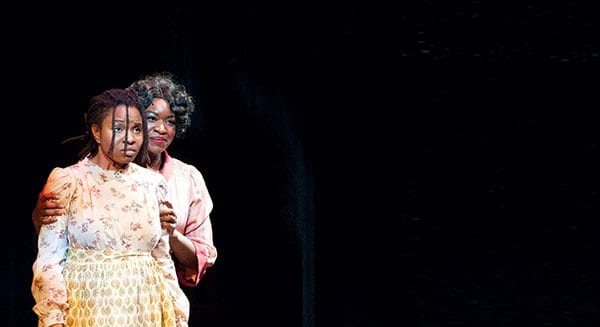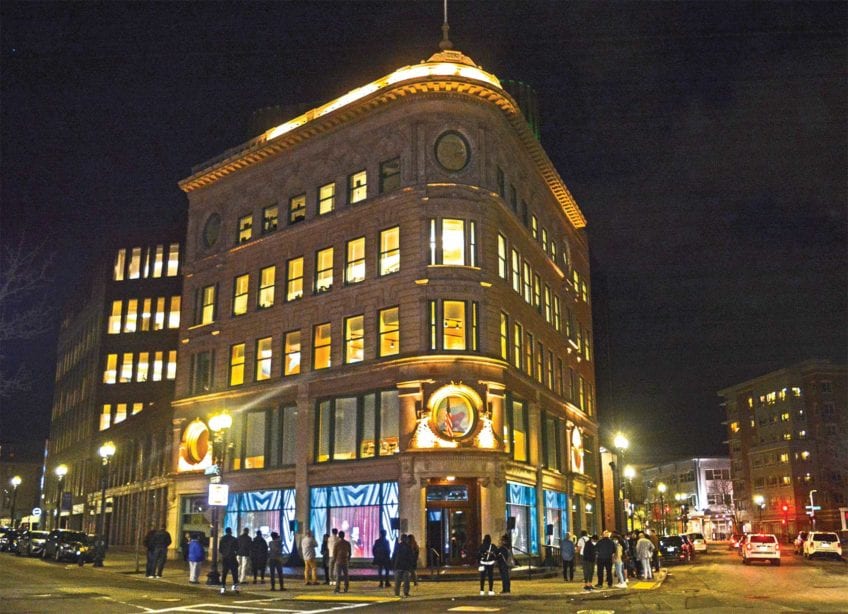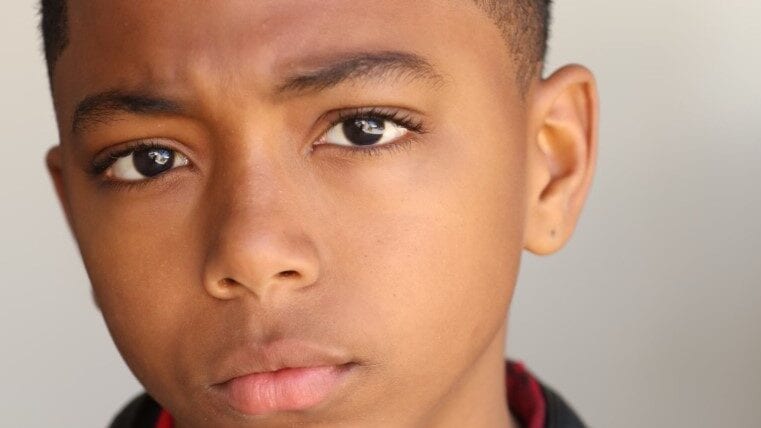

Author: Glenn PerryRoxbury native Hoffman performs to rave reviews as the lead of “The Color Purple.”
Celie, the lead character in the musical “The Color Purple,” which is playing in Boston at the Speakeasy Theater until Feb. 8, is stuck throughout most of her life in a suffocating reality. She comes from an uncomfortable past — a poor black child of the postbellum South whose father was lynched, whose mother was helpless and subjected to spousal betrayal, and whose stepfather molested her. By age 14, Celie is illiterate and already the mother of two babies.
But things only get worse for her.
Given away with a cow to a monster named Mister, Celie feels the full aches of patriarchy and the numbing oppression of living at the very bottom of a society that is manifestly misogynistic, racist and caste-conscious.
Celie’s plight reflects how black women persisted at the lowest stratae of society in rural Georgia in the 1930s — fighting against many demoralizing slights, dehumanizing hostilities and ever-threatening, randomly delivered acts of physical violence.
After forceful separation from her sister, Nettie, and suffering the incessant insults of Mister, Celie can only bellow out her most searching existential rage, asking the divine, “What kind of God are you?” She concludes disappointedly that God is simply no more than other man, “trifling and lowdown.”

Author: Glenn PerryA scene features most of the cast of the musical, including Hoffman, Maurice Emmanuel Parent, Crystin Gilmore, Valerie Houston, Anich D’Jae, David Jiles Jr., Cliff Odle and Jared Dixon.
Based on the 1983 Pulitzer Prize and National Book Award-winning novel by Alice Walker and drawing on the legacy of the 1985 Steven Spielberg movie starring Whoppie Goldberg, Danny Glover and Ophra Winfrey, the musical version of “The Color Purple” is spritely despite the daunting themes.
Powered by the magnificent performance of Roxbury native Lovely Hoffman as Celie, the musical’s narrative follows her slow, inexorable journey toward self-realization. She is alternatively shocked into personal development through episodic abuse, sexual encounters and then familial love and reconciliation.
Shug Avery, an always searching and lubricious juke joint singer, (played with charismatic flare by Crystin Gilmore) is central to Celie’s evolution. Their love affair represents an honest and earned self-awareness that is punctuated in one of this musical’s well-performed songs, “Too Beautiful for Words,” which is rendered with affecting tenderness, hope and smoldering desire.
“The Color Purple” is a spiritual coming-of-age story on many levels and a harrowing psychological journey for several of the musical’s central characters. Immature and unaware at the story’s beginning, Celie, Avery, Sophia and Mister experience an upward growth — a new form of “creation” gained through revelation wrought by soul searching and moral testing.

Author: Glenn PerryCrystin Gilmore (center) as Shug Avery with (l-r) Lovely Hoffman, Taylor Washington, Carolyn Saxon and Maurice Emmanuel Parent in a scene from the SpeakEasy Stage Company production of “The Color Purple,” running through Feb. 8 at the Boston Center.
No transformation is more dramatic than Celie’s who — through Hoffman’s considerable interpretive skill and mastery of her character’s spoken words and unpronounced thoughts —comes to accept pathos as a road toward wisdom, forgiveness and redemption.
“The Color Purple” currently rests at the center of the modern American literary canon, a feminist resistance against the travails of being “black, poor, ugly and a woman.”
The musical is a salute to the high-art of story-telling and is a recognition that “creation” is not only the work of God, but is the stuff of mutual growth and slow, inexorable evolution within the context of community.
Hoffman, the daughter of Bishop Edward W. Hoffman of Dorchester’s Calvary Church International Ministries, is a local rising star, a commanding stage force as she showcases her abilities at rendering human feeling in splendidly conveyed and emotionally composed coloring.
The supporting cast is bright, including worthwhile performances by Jared Dixon as Harpo, Maurice Emmanuel Parent as Mister, Alia Hodge at Nettie and Boston Conservatory graduate Anich D’Jae, who possesses an irrepressibly palpable stage presence and an accomplished sense of comedic intelligence as Squeak.

Author: Glenn Perry“The Color Purple” performers Jared Dixon and Valerie Houston during the musical adaptation of the prize-winning book by Alice Walker.
Directed ably by Paul Daigneault, this staging also features the strong composing efforts of Brenda Russell, Allee Willis and Stephen Bray.






